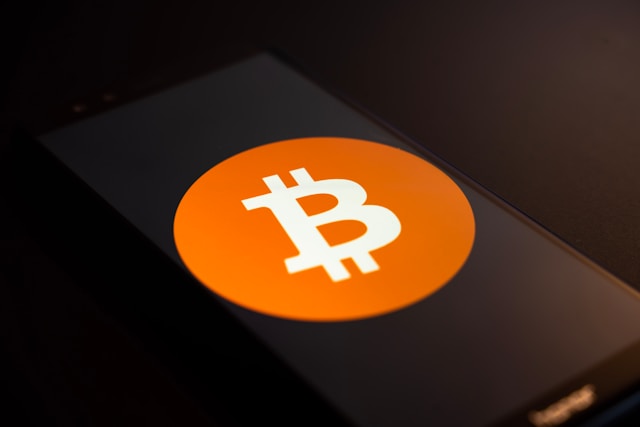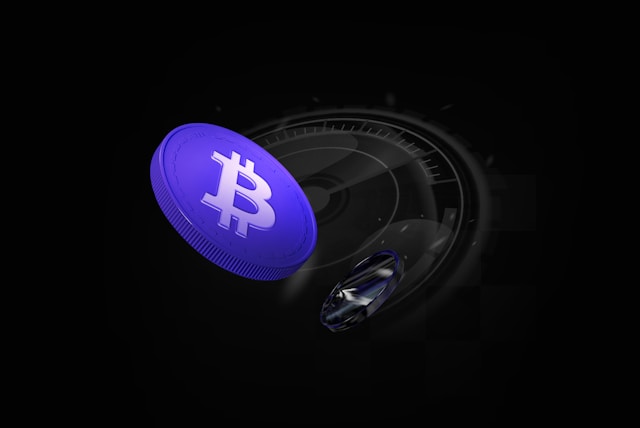Explore what blockchain is, its key features, benefits, and real-world financial applications like DeFi, smart contracts, and cross-border payments beyond cryptocurrency.
Introduction
The use of blockchain technology in other areas and not only cryptocurrencies, is beyond Crypto. It facilitates transparent, open, and secure financial sector operations, such a cross-border transactions, asset tokenization, smart contracts, validations of digital identity, regulatory compliance, and decentralized financial services, changing the existing financial frameworks.
What is Blockchain?
Blockchain is an online platform that can safely store data on numerous computers. The records are known as blocks, and they are all connected. It is decentralized, difficult to change, and it does not need a central authority. In addition to cryptocurrencies, it assists in tracking goods, data management, and securing transactions.

Features of blockchain
Transparency
The same data on transactions can be accessed by all the players using blockchain, and all of them are accountable; fraud is avoided, and trust is built because of a fully visible and verifiable digital journal.
Consensus
The network participants are the ones to authenticate the blockchain transactions and accept them via consensus mechanisms; a centralized body is not necessary to authenticate the transactions.
Immutability
The next factor of the data integrity and the reliability of the blockchain is that the data, which is already in the blockchain, can never be fixed or deleted, which ensures a unique, permanent, and unedited record.
Faster Settlement
Blockchain allows near real-time processing of transactions since it eliminates intermediaries, decreases delays during payments, settlements, and updating of records in banking and supply chains, among others.
Immutable (duplicate emphasis)
Each block is cryptographically connected to the last one, and transactions in the past cannot be changed or altered by altering the previous one, thus creating a secure and dependable digital version.
Benefits of blockchain
Greater Trust
This decentralized blockchain system is more transparent and as all transactions can be seen, validated, and immutable, and the intermediaries are unnecessary, there to a rise in the level of trust.
Enhanced Security
Cryptography has been used to secure data in blockchain, and it is nearly impossible to alter or intercepttransactionss thus securing sensitive financial information and eradicating fraud and data breaches.
Better Traceability
All transactions made on a blockchain are stored and timed, which gives a better traceability of assets, supply chain verification, and precise auditing of financial and business processes.
Increased Efficiency
Blockchain is more efficient because it eliminates middlemen and simplifies operations to guarantee fewer delays and transaction costs and quicker financial services and operations; it can make banking, payments, and trade finance efficient.
Automated Transactions
Self-executing deals are made through blockchain using smart contracts, which can be achieved with automated tasks such as payments, loan disbursements, and insurance claims, without manual effort, errors, or time.
Real-World Applications of Blockchain in Finance
1. Cross-Border Payments
The old method of international money transfer can take much time and is expensive, as the money is transferred through numerous people. This is made simpler by blockchain, which allows direct peer-to-peer transactions, greatly saving costs and processing time. As an example, the Ripple and SWIFT GPI platforms are powered by a blockchain that can settle quicker and more open cross-border payments.
2. Trade Finance
Trade finance has been traditionally paper-based and subject to fraud. Blockchain is making this industry better, with the digitalization of documents, including letters of credit and bills of lading, which are secure and transparent transactions. This revolution diminishes fraud chances, and trade speed is increased.
3. Asset Tokenization
Physical and financial assets can be tokenized with the help of blockchain, which allows sharing and controlling ownership fractionally and entering a larger market. This liberalizes the investment avenues, enabling people to invest in such investments as real estate or art, but at a lesser capital base.
4. Decentralized Finance (DeFi)
DeFi is using blockchain to provide financial services,, including lending, borrowing, and trading activiti,e,s without the use of traditional intermediaries. DeFi platforms offer a better-controlled and possibly higher-return experience to users by leveraging smart contracts to take control of their financial lives.
5. Digital Identity Verification
Blockchain is safe to store and manage digital identities, and it prevents the possibility of identity theft and fraud. Identity systems based on blockchains can assist financial institutions in streamlining the Know Your Customer (KYC) processes, enhancing compliance and customer acquisition.
6. Smart Contracts
Smart contracts are self-executable contracts whose conditions of the agreement are coded directly into the code. They are used in finance to automate operations like loan payments, insurance claims, and to save on human error and administrative costs.
Why businesses are embracing blockchain
1. Enhanced Security
Cryptography and decentralized networks guarantee that the sensitive information in the business is safe and secure at any one time, as tampering, fraud, and other unauthorized access through blockchain cannot be applied.
2. Greater Transparency
All blockchain transactions are documented and can be seen by permitted parties, enabling businesses to trace actions, information validation, and establish trust among customers, associates, and regulators effectively.
3. Cost Efficiency
Through cutting down intermediaries, errors, and automating operations with smart contracts, blockchain can assist businesses riindureducingeir operational expenses and increasing business accuracy and reliability during day-to-day tasks and long-term projects.
4. Faster Transactions
Blockchain enables the near real-time validation and execution of transactions on networks to eliminate delays incurred by the traditional banking or record-keeping system and speed up payments, settlements, and business operations anywhere on the globe.
The Future of Blockchain Beyond Crypto
The potential of blockchain is enormous in areas other than cryptocurrency. As technology matures and is used, the healthcare sector, logistics, and government in general are likely to go through certain changes. Firmthatch implementing blockchain can have increased transparency, efficiency, and security, and ultimately redefine what our online transactions and data management can be.

FAQs
Can blockchain secure healthcare data?
Yes. Blockchain enables the safe sharing of patient records, eliminates any compromises, and sensitive medical information can be accessed only by authorized personnel.
Are there any challenges to implementing blockchain?
Yes. Its challenges are difficulties in scaling, energy consumption, uncertainty in regulations,t he and the inability to integrate with existing systems.
How does blockchain improve supply chain management?
The blockchain follows the products through the supply chain, increases transparency, authenticity, and fraud eradication, and improves delivery and inventory management processes.
Conclusion
In addition to cryptocurrencies, blockchain is also changing the nature of financial transactions because it is a secure, transparent, and effective interaction. It is decentralized, whether it is cross-border payments, DeFi, and smart contracts, thereby making it more trustworthy, cost-effective, and efficient in processes, which is the future of financial systems in the world of the globe.



